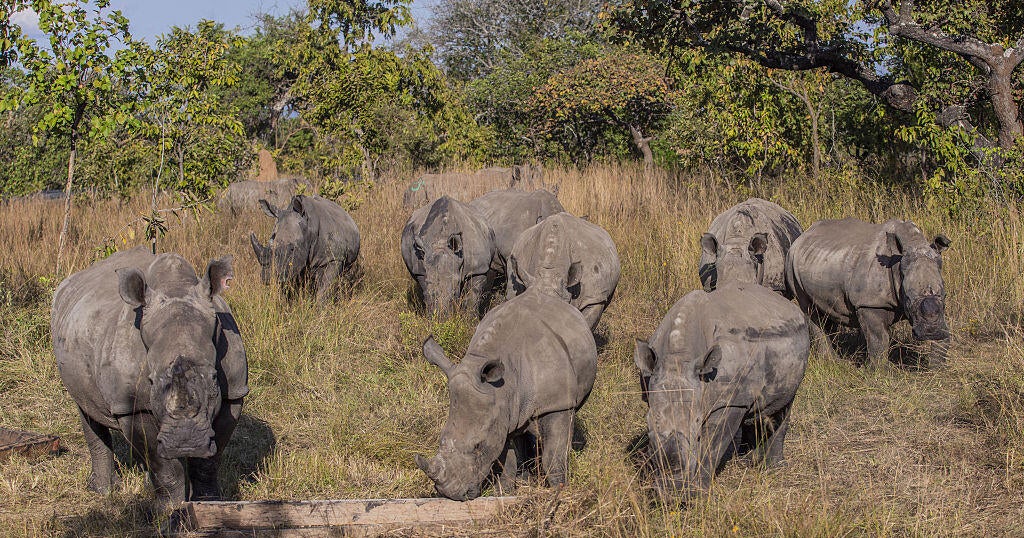

No response returned

Six people, including a well-known rhinocerous breeder, have been charged in South Africa in connection to an international trafficking network after a seven-year investigation, officials announced Tuesday.
The suspects are accused of smuggling 964 horns worth $14.1 million to illegal markets in Southeast Asia. They face charges of fraud, theft and violating a national biodiversity law, the South African government said.
is legal in South Africa among citizens, but local laws do not allow for their export due to an international ban.
The investigation by the country's specialized Hawks police unit "is a powerful demonstration of South Africa's resolve to protect its natural heritage," Minister of Forestry, Fisheries and the Environment Dion George said in a statement. "The Hawks' work shows that our enforcement agencies will not hesitate to pursue those who plunder our wildlife for criminal profit."
Among the six suspects is , the former owner of the world's largest rhino conservation farm. The 19,270-acre "Platinum Rhino" site in a northern province of South Africa was bought by the African Parks NGO in 2023 and is home to around 2,000 animals, about 15% of the world's remaining wild population of southern white rhino.
Hume, in his mid 80s, and the five others appeared in a magistrate's court in the capital Pretoria and were granted bail, a spokesperson for the Hawks told the Agence France-Presse.
Zimbabwe-born Hume sparked controversy in 2017 by organizing a three-day online auction of horns he had amassed by sawing them off the rhinos in order to prevent their killing by poachers, though the sale attracted fewer buyers than anticipated.
Once abundant across sub-Saharan Africa, rhino numbers fell dramatically due to hunting by European colonizers and large-scale poaching, with their horns highly sought after on black markets, particularly in Asia, where the price by weight rivals that of gold and cocaine.
Alongside ivory, the horns are coveted as status symbols or used in traditional medicine for their supposed aphrodisiac properties.
The organization praised the arrests on Tuesday.
"Disrupting transnational organised crime is essential to stopping poaching, allowing populations to recover and ensuring rhinos have a future in the wild," the group's CEO, Jo Shaw, said in a statement.





